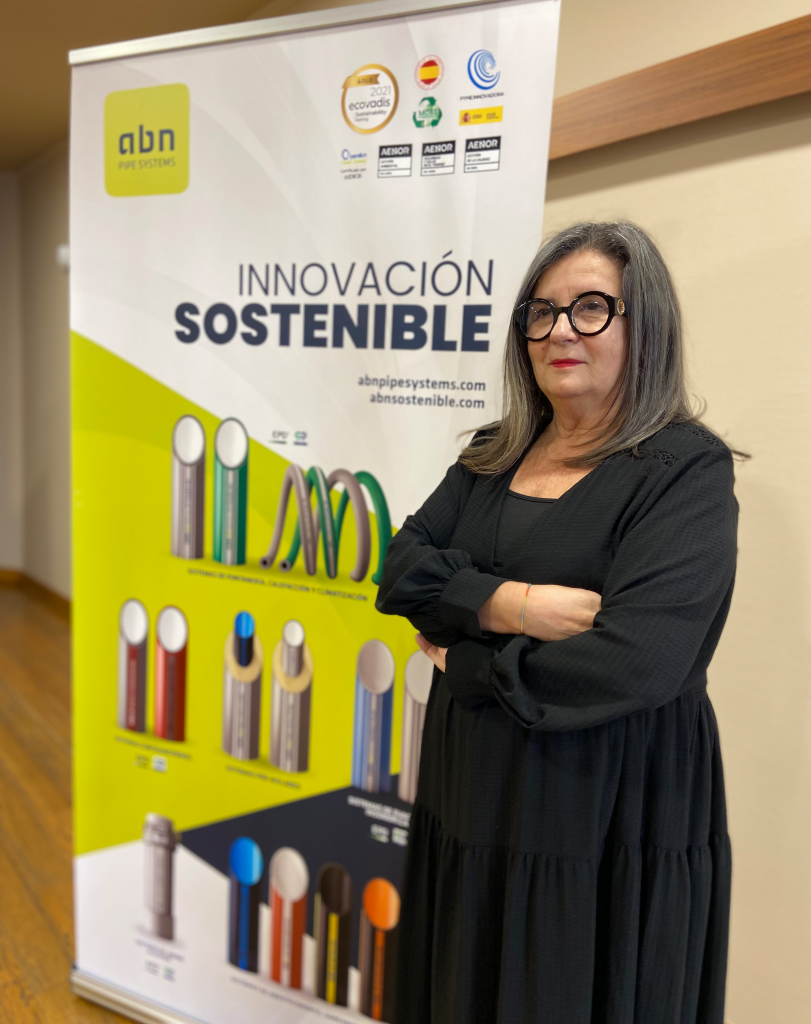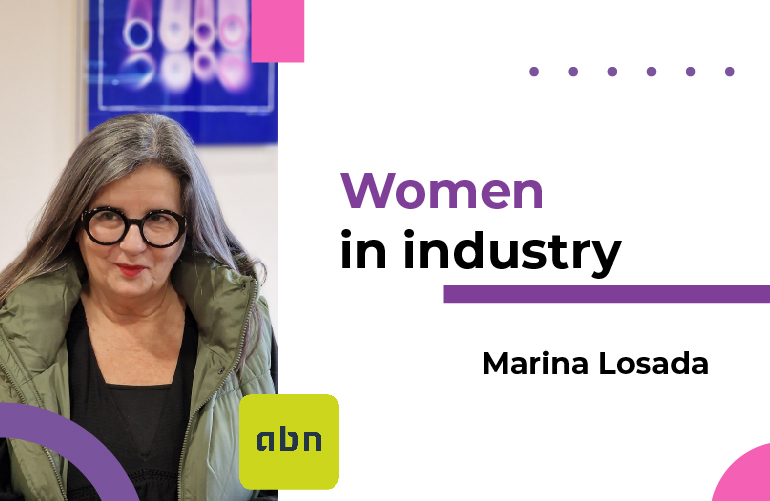We couldn’t end our #womeninindustry interview series on a better day than today, World Women’s Day. Throughout this cycle, our aim has been to make female talent visible through talks with leading professionals in fields such as science, technology, engineering and mathematics, with the participation of María Rigueira and Patricia Aymà.
In this third instalment we talk to a woman who has been part of ABN’s trajectory almost since its beginnings and whom we admire both professionally and personally. She is Marina Losada, head of ABN’s technical department.
With a career spanning almost four decades in the industrial sector, Marina shares with us her experiences, challenges and reflections on the evolving role of women in the industry.

“I have been in industry for nearly 38 years. Throughout my career I have been able to see how the representation of women in the industry has increased, although in my opinion it is still scarce.“
Marina Losada
Q: Could you tell us a bit about your career path and how you came to be head of ABN’s technical department?
M: My interest since I was quite young has always been everything to do with construction. For this reason, and thanks to my father’s support, I began my studies in technical architecture at the Polytechnic University of Madrid. I remember that in those early years of university there were very few women in the classroom, but I never felt at a disadvantage compared to my male classmates. Years later, in the world of work, my personal interest in continuing to advance and update myself led me to study building engineering.
Before joining ABN, I worked in several companies alongside male colleagues. But it was at ABN that I was able to deal with all the technical issues related to the installations sector on my own, dealing with queries from both clients and colleagues in the sales network. These were years of intense apprenticeship in a clearly male-dominated sector, but my efforts and dedication have allowed me to become the head of the group’s technical office.
Q: With almost 38 years of professional development in the sector, what is your perspective on its evolution in terms of incorporating female talent?
M: I have been in the industrial sector for nearly 38 years and just this month I celebrate 30 years at ABN. Throughout my career I have been able to see how the representation of women in the industry has increased, although in my opinion it is still scarce. I believe that there should be much more female representation in our sector.
Coincidentally, in this particular sector, I perceive that women are required to have a higher level of knowledge than men. Y las mujeres, generalmente, suelen estar en puestos administrativos o departamentos técnicos. I also know of companies where women require a lot of training to reach a management position, while there are men in senior positions with no training.
On the other hand, anecdotally, none of my fellow female students has ever been unemployed: all of them have always been working in industry-related sectors, which shows that the presence of women in the sector is becoming more and more recognised and it is no longer unusual for a technical department to be headed by a woman.
Q: And from your personal experience, how have you lived these years in the sector?
M: I have experienced everything, the most absolute sexism, and not only because I am a woman. Specifically, I had a job offer from a multinational company, where after four or five interviews without agreeing on the salary, one of the bosses, who was interviewing me, even told me that why did I want the salary if I was married. That seemed to me to be the height of sexism! Today, fortunately, the situation is much improved.
Q: Can you share any challenges you have faced as a woman in a technical sector like yours?
M: At the beginning of my professional career, men did not trust me because I was a woman, neither because of my knowledge nor because of my youth. When I came to ABN, many installers did not want to talk to me because I was a woman. They would go round and round before they were referred to me, and if they were, they would not allow me to make a single mistake in my work, everything had to be perfect.
Q: How are women treated in the industry today?
M: Much better! The situation of women in the industry has improved a lot in recent years, but it is also a relatively recent development.
Women have benefited from the fact that men are beginning to demand work-life balance. In this aspect, laws have played a crucial role in promoting equality and raising awareness in society.
On the other hand, the change in the mentality of young people has also been a determining factor. It has even led us to rethink existing work dynamics.
However, I believe there is still a long way to go. Women should be valued for their knowledge, not for the mere fact that they are women, but there is a lack of education for that.
